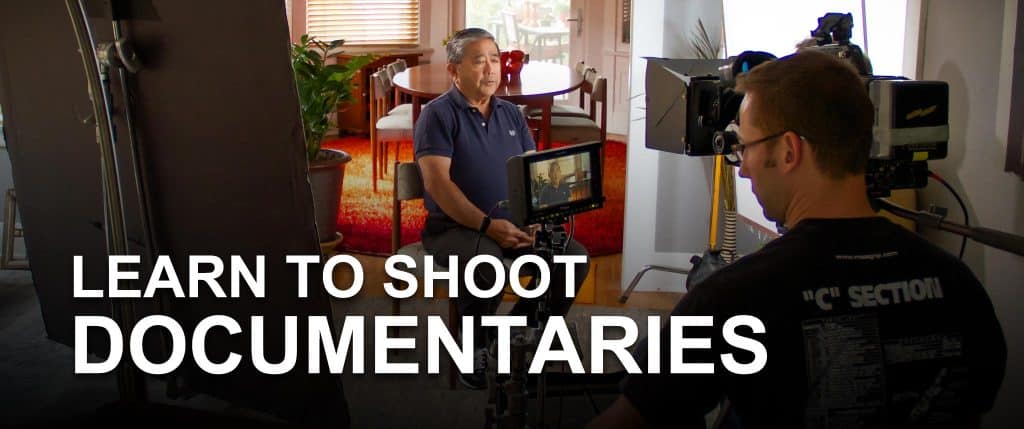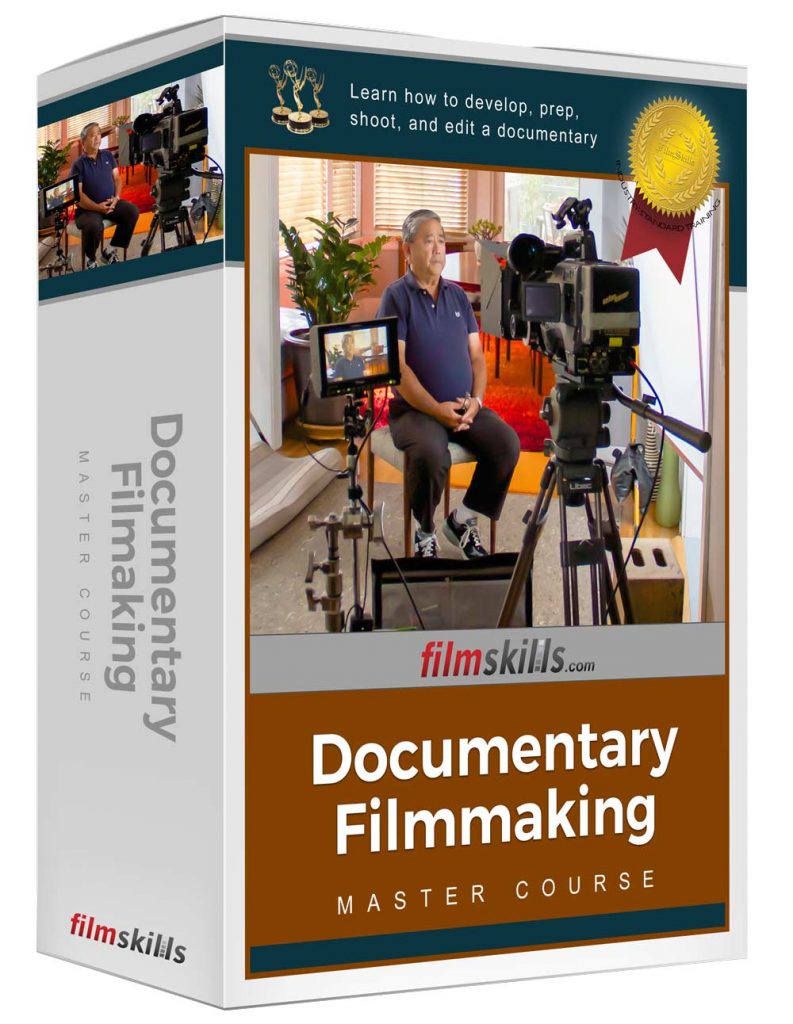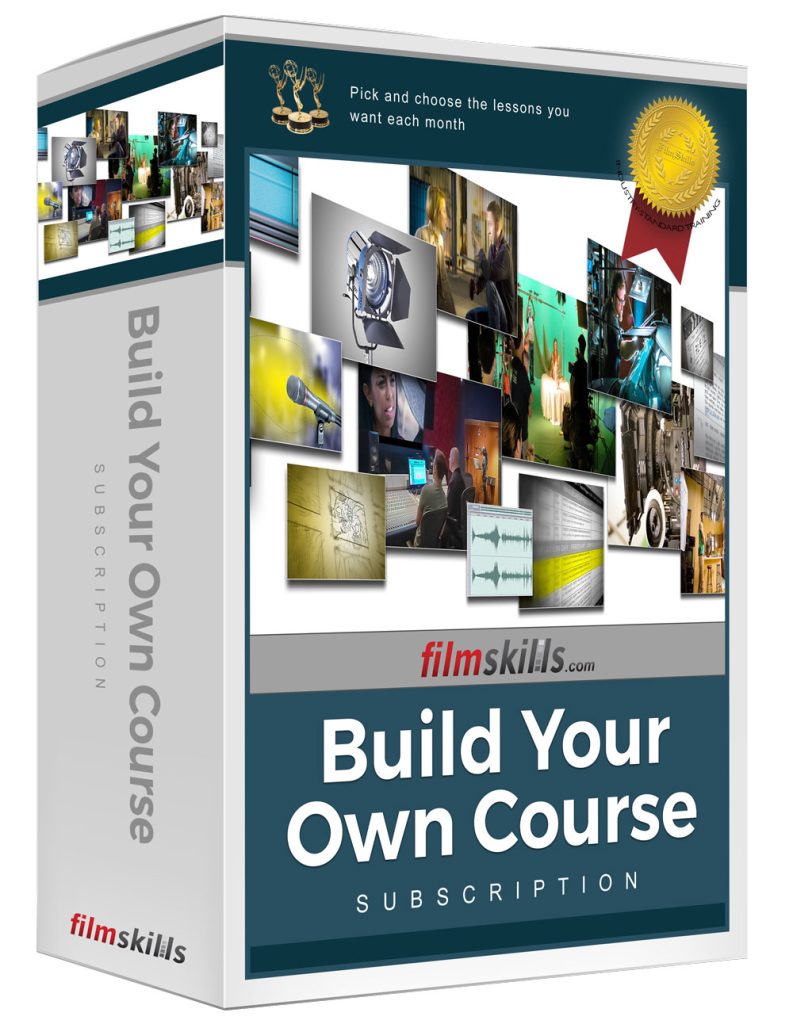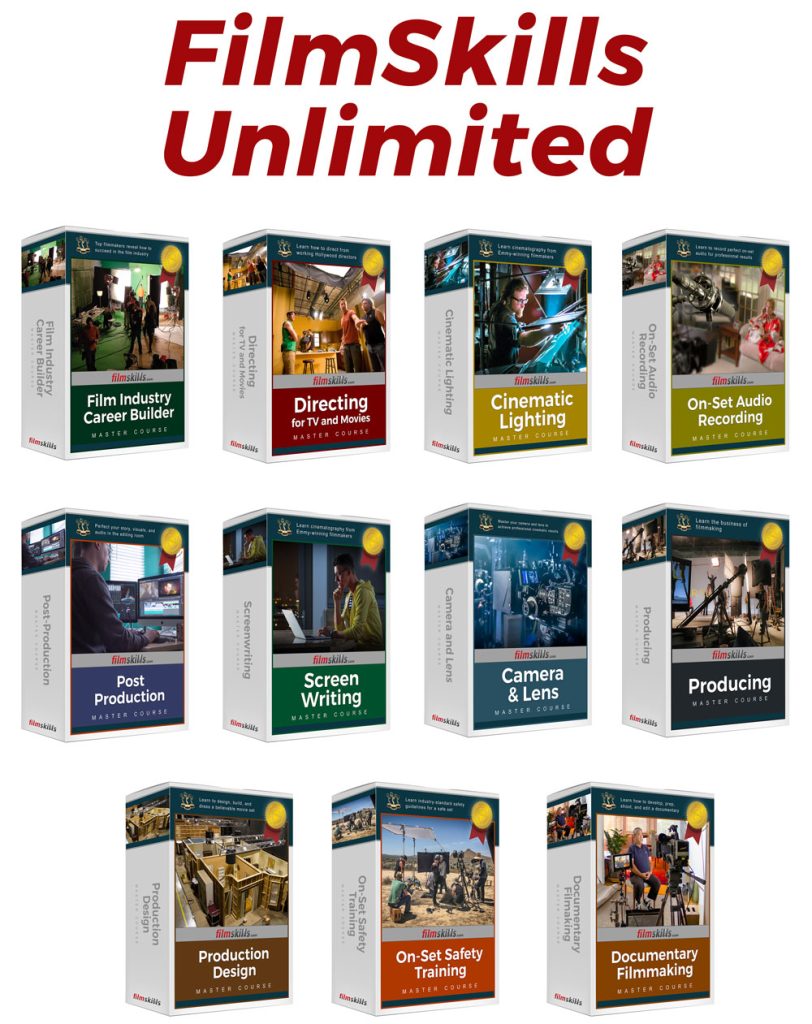The Complete Filmmaking Curriculum
Over a hundred Hollywood professionals helped build a comprehensive filmmaking curriculum.

Documentary Filmmaking
Learn the entire documentary story-telling process from over a dozens leading documentary filmmakers. From developing the story through on-set production techniques, the documentary storytelling process comes alive.
The Documentary Format
In this lesson, students learn about documentary storytelling, the types of documentaries, the challenges of the medium, the difference between objective and subjective filmmaking, observational cinema, and how the documentary format differs from fictional movies. (17:05)
Documentary Story-Telling Tools
In this lesson, we explore the story-telling tools of the documentarian. We dive into how interview, B-roll, recreations, and archival footage can be used to support the story you are telling. (23:01)
Finding the Story
In this lesson, students learn how to find the story by refining the subject matter, develop a viable and engaging hypothesis, unlock the secrets of the story arc, find a balance between the art and commerce of documentary filmmaking, know the audience, and narrow down broad concepts. (24:50)
Preparing the Interview
Learn how to find qualified subjects, techniques for preparing to shoot the perfect interview, tips on what to wear, how to select the right chair, how to work through a translator, and how to deal with release forms – especially in a heated or controversial interview. (33:03)
The Art of the Interview
Learn how to warm up a nervous subject, how to determine the objective of the interview, the first question you should always ask, how to uncover the truth especially with subjects intent on deceiving or leading you, how to work with difficult subjects, how to conduct interviews in which you are also on camera, and how to conduct man-on-the-street interviews. (27:18)
Ethics and Objectivity
Learn the difference between a subjective and objective approach to filmmaking, how to recognize bias, how to balance your own ethics and feelings in difficult situations, and ethical guidelines both in the field and in the editing room. (21:37)
Documentary Pre-Production
Learn how to effectively prep a documentary shoot, research your subject, properly use release forms and secure permissions to protect yourself legally, know what crew to hire, and how to determine when it’s time to shoot. (18:51)
Choosing the Gear
Learn how to prepare for life in the field, how to choose the right camera and camera support gear, how to manage batteries and media on location, how to prepare for audio recording, how to pack for the road, and how to make sure your gear survives airports and the airlines. (32:08)
The Interview Location
Learn what to look for in potential locations, how to work in the all-too-common hotel room or conference room, how to make sure a space is rights-cleared, and how to create a comfortable environment for your subject. (18:53)
Interview Camera Set-Ups
Learn how to shoot interviews alone with one camera, one camera with an operator, a cross-shooting two-camera technique, how to work with different frame sizes, work with monitors, techniques for shooting on the run, and how and when to use auto settings. (25:05)
Shooting B-Roll Footage
Learn to harness the power of B-Roll for your film, how to use verité footage, basic coverage techniques in the field, how to shoot sequences, how to tailor B-roll for interviews, and how to shoot B-roll after the edit. (21:52)
Field Shooting Techniques
Learn when to shoot in auto or manual modes, how to properly shoot your coverage, how to adjust the amount of footage for the project, how to shoot green screen plates, how to work with ambient sound, and how to manage the legalities of a shoot. (20:17)
Editing Documentaries
Learn how to manage your footage, organize interviews and B-roll, how to find and narrow the story, how to maintain your objectivity in the thick of the process, know what to cut, and how to finish the film. (28:41)


